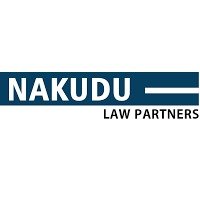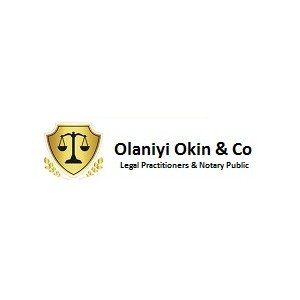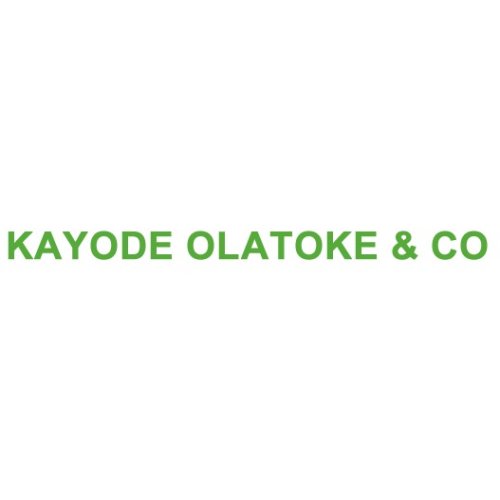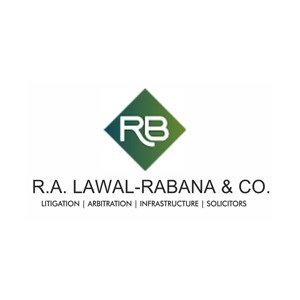Best Acquisition / Leveraged Finance Lawyers in Nigeria
Share your needs with us, get contacted by law firms.
Free. Takes 2 min.
Or refine your search by selecting a city:
List of the best lawyers in Nigeria
Legal guides written by Adeola Oyinlade & Co:
- Procedure and Requirements for Work Permit and Visas in Nigeria
- The Step-By-Step Procedure of How to Apply for Microfinance Bank License Online in Nigeria
- How to Ensure the Smooth Recognition and Enforcement of Foreign Judgments in Nigeria
About Acquisition / Leveraged Finance Law in Nigeria
Acquisition and leveraged finance refers to the structured financial arrangements used to fund the purchase of businesses, assets, or shares. In Nigeria, this area of law facilitates mergers, acquisitions, management buyouts, private equity investments, and other transactions where parties use loans, bonds, or other forms of debt to finance business purchases. Leveraged finance usually involves a higher degree of risk due to the use of significant debt relative to equity. Nigerian legal frameworks establish how these transactions are structured, documented, and enforced, ensuring that the interests of lenders, borrowers, and other stakeholders are protected.
Why You May Need a Lawyer
Legal expertise is essential during acquisition and leveraged finance transactions because these deals are complex and involve multiple legal, financial, and regulatory issues. Situations where you may require a lawyer include:
- Negotiating and drafting loan agreements, security documents, or facility letters
- Structuring deals to comply with Nigerian legal and regulatory requirements
- Conducting due diligence on the target company or assets
- Advising on regulatory approvals and notifications, such as those required by the Securities and Exchange Commission or the Federal Competition and Consumer Protection Commission
- Ensuring enforceability of legal rights and security interests in case of default
- Advising on tax implications and corporate structuring to optimise transactions
- Resolving disputes or defaults arising from acquisition finance agreements
A lawyer experienced in acquisition and leveraged finance can help safeguard your interests and ensure a smooth transaction.
Local Laws Overview
Several statutes and regulations govern acquisition and leveraged finance in Nigeria. The Companies and Allied Matters Act (CAMA) provides the legal foundation for mergers, acquisitions, corporate restructurings, company incorporation, and security creation. The Securities and Exchange Commission (SEC) rules and guidelines regulate capital market transactions involving public companies. The Banks and Other Financial Institutions Act (BOFIA) is relevant for banking institutions providing finance. The Investments and Securities Act (ISA) and related competition laws, such as those enforced by the Federal Competition and Consumer Protection Commission (FCCPC), may also apply.
Key legal considerations in acquisition and leveraged finance transactions include:
- Permitted structures for financing acquisitions (asset vs share purchases; use of holding companies)
- Requirements for creating, registering, and perfecting security interests
- Mandatory consultations, notifications, and approvals from regulatory bodies
- Restrictions on borrowings, such as rules for financial assistance and limitations under company law
- Foreign exchange and capital controls imposed by the Central Bank of Nigeria (CBN)
- Tax considerations, including stamp duties and withholding taxes
It is important for all parties in these transactions to understand and comply with the legal landscape to avoid regulatory penalties and ensure deal success.
Frequently Asked Questions
What is leveraged finance in the context of Nigerian law?
Leveraged finance in Nigeria typically refers to the use of significant borrowed funds to acquire a business or assets, where the loans are often secured against the assets being acquired or other collateral.
What types of security can lenders take in Nigerian leveraged finance deals?
Lenders can take various forms of security such as debentures, legal or equitable mortgages, charges over shares or assets, and assignment of receivables. Security interests must be properly registered and perfected to be enforceable.
Do Nigerian regulations restrict the amount a company can borrow for acquisitions?
The borrowing capacity of a Nigerian company may be restricted by its constitutional documents and applicable banking regulations, but there is no universal statutory borrowing limit for all companies. Regulatory consents may be required depending on the transaction.
Are foreign lenders allowed to participate in Nigerian leveraged finance transactions?
Yes, foreign lenders can participate, but they must comply with Nigerian exchange control regulations, and repatriation of interest or funds may require Central Bank of Nigeria approval.
What are the main steps in executing an acquisition finance transaction in Nigeria?
The main steps include structuring the transaction, negotiating terms, conducting legal and financial due diligence, preparing and executing loan and security agreements, obtaining regulatory approvals, and registering security interests.
What laws govern mergers and acquisitions in Nigeria?
Mergers and acquisitions are primarily governed by the Companies and Allied Matters Act, the Investments and Securities Act, and relevant rules and guidelines issued by the Securities and Exchange Commission and the Federal Competition and Consumer Protection Commission.
How is financial assistance regulated in Nigerian acquisitions?
Financial assistance by a target company for the acquisition of its own shares is generally restricted under the Companies and Allied Matters Act, with specific exceptions and procedures available for certain transactions.
What tax considerations apply to leveraged finance deals in Nigeria?
Relevant taxes may include stamp duties on security documents, withholding taxes on interest payments, and value added tax. Tax planning is crucial to ensure compliance and transaction efficiency.
Can security interests over assets and shares be enforced in Nigeria?
Yes, security interests are enforceable provided they are duly created, registered, and perfected in accordance with Nigerian law.
What happens if a borrower defaults under an acquisition finance facility?
If a borrower defaults, the lender may exercise its rights under the contract, which could include enforcement of security, appointment of a receiver or manager, or initiating legal proceedings to recover the debt.
Additional Resources
If you need further information or legal guidance regarding acquisition or leveraged finance in Nigeria, the following resources may be helpful:
- Securities and Exchange Commission (SEC) Nigeria
- Federal Competition and Consumer Protection Commission (FCCPC)
- Central Bank of Nigeria (CBN)
- Corporate Affairs Commission (CAC)
- Nigerian Bar Association (NBA)
- Leading commercial law firms and financial advisory specialists
These organizations provide regulatory oversight, guidance, and resources for parties involved in acquisition and leveraged finance transactions.
Next Steps
If you are considering or currently involved in an acquisition or leveraged finance transaction in Nigeria, it is advisable to consult a qualified lawyer who specializes in this area. Begin by:
- Gathering all relevant documents and information regarding the proposed transaction
- Identifying any deadlines, regulatory requirements, or specific concerns
- Reaching out to a reputable law firm or specialist for an initial consultation
- Discussing your goals, risks, and questions in detail with your legal advisor
- Following legal guidance to ensure compliance with Nigerian laws and effective risk management
Early legal advice can help prevent costly mistakes and position your deal for success. Be proactive, seek knowledgeable counsel, and maintain open communication throughout the process.
Lawzana helps you find the best lawyers and law firms in Nigeria through a curated and pre-screened list of qualified legal professionals. Our platform offers rankings and detailed profiles of attorneys and law firms, allowing you to compare based on practice areas, including Acquisition / Leveraged Finance, experience, and client feedback.
Each profile includes a description of the firm's areas of practice, client reviews, team members and partners, year of establishment, spoken languages, office locations, contact information, social media presence, and any published articles or resources. Most firms on our platform speak English and are experienced in both local and international legal matters.
Get a quote from top-rated law firms in Nigeria — quickly, securely, and without unnecessary hassle.
Disclaimer:
The information provided on this page is for general informational purposes only and does not constitute legal advice. While we strive to ensure the accuracy and relevance of the content, legal information may change over time, and interpretations of the law can vary. You should always consult with a qualified legal professional for advice specific to your situation.
We disclaim all liability for actions taken or not taken based on the content of this page. If you believe any information is incorrect or outdated, please contact us, and we will review and update it where appropriate.
Browse acquisition / leveraged finance law firms by city in Nigeria
Refine your search by selecting a city.

















